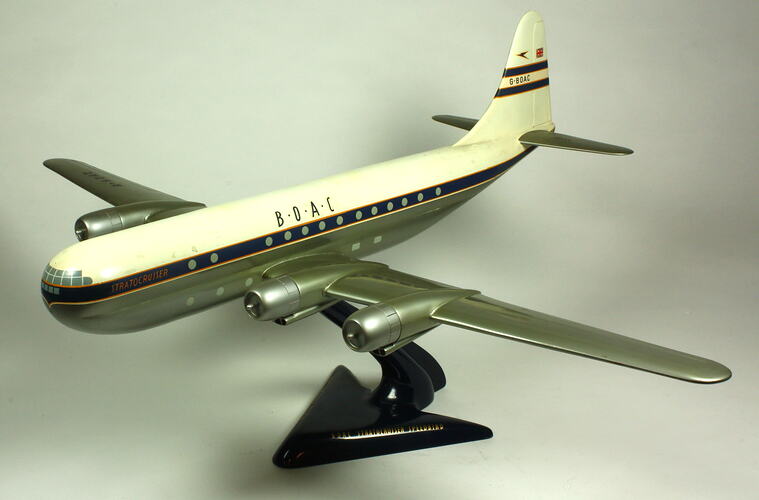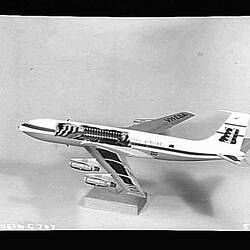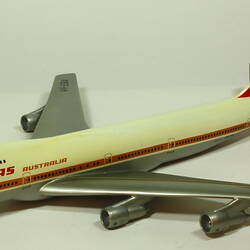Summary
Aircraft History
The Model 377 Stratocruiser was developed in the US from Boeing's B-29/B-50 bomber. Along with the Lockheed Constellation, the Stratocruiser was the ultimate development in piston engine airline travel. It first flew in July 1947 with deliveries commencing in 1949. Power was provided by four Pratt & Whitney R-4360 engine delivering 3500 horsepower each. The 'double-bubble' pressurised fuselage allowed a two-level passenger compartment with spiral staircase. Depending on the internal fit-out, the Stratocruiser could carry 55-100 passengers. Bunk beds and dressing rooms were an option. A total of 56 were built. Stratocruisers operated by Pan American Airways (Pan Am) flew the trans-Pacific service from Sydney to San Francisco beginning in 1951 replacing the DC-4 and cutting flying time from 46 to 37 hours.
The C-97 was the military version of the Stratocruiser.
Model History
This display/presentation model of a BOAC Boeing Model 377 Stratocruiser was presented to the Museum by the British Oversea Airway Corporation in 1954 after it had been loaned for display in the 'Jubilee of Flight' exhibition in 1953-54 .BOAC operated the Stratocruiser on the 'Monarch' trans-Atlantic service between 1951 and 1959 when it was replaced by the Boeing 707. In 1953-54 Queen Elizabeth II flew in a specially appointed BOAC Stratocruiser during her tour of the Commonwealth.
More Information
-
Collecting Areas
-
Acquisition Information
Donation from British Overseas Airways Corporation, 16 Mar 1954
-
Manufacturer of Item Modelled
Boeing Aircraft Corp, Seattle, Washington, United States of America, 1947-1950
-
User of Item Modelled
British Overseas Airways Corporation, England, Great Britain
-
Model Name or Number
-
Brand Names
-
Classification
Air transport, Aircraft, Model propeller aircraft - passenger
-
Category
-
Discipline
-
Type of item
-
Keywords


